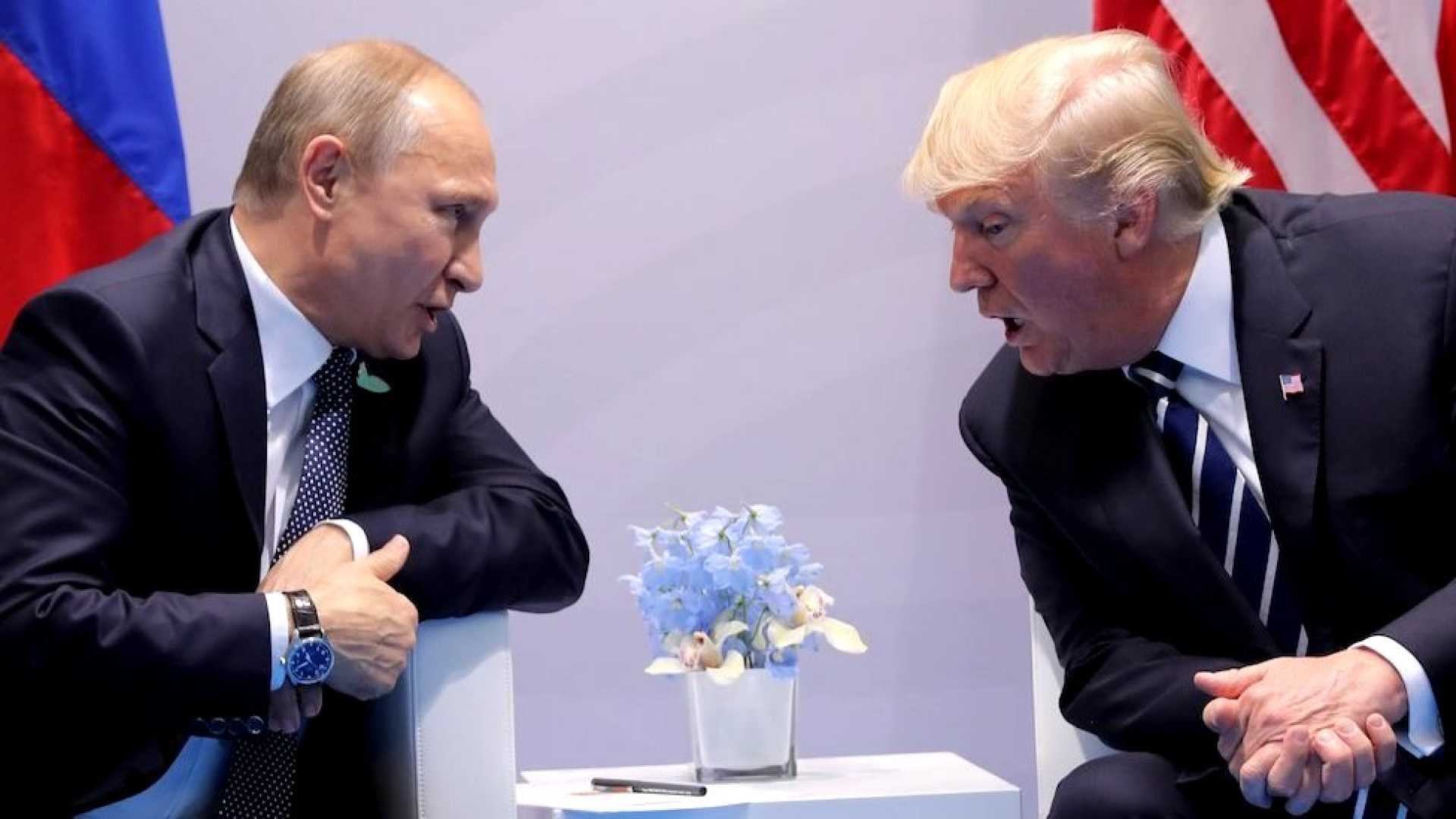Politics
Trump Accuses Ukraine of Accountability in Ongoing War with Russia

PALM BEACH, Fla. — Former President Donald Trump is facing backlash after accusing Ukraine of being responsible for the ongoing war with Russia, during remarks made from his Mar-a-Lago residence on Wednesday.
The controversial statements came after U.S. officials convened with a Russian delegation in Riyadh to discuss potential strategies for concluding the nearly three-year conflict. Trump’s assertions about Ukrainian President Volodymyr Zelensky, including claims regarding his popularity and the suspension of elections due to martial law, sparked a heated response from Zelensky and other political figures.
During a news conference, Trump insisted that Zelensky was a “dictator” for not holding elections, which were previously scheduled but have been postponed amid the ongoing martial law in Ukraine. Ukraine has not conducted presidential elections since 2019, when Zelensky won as a political outsider against an incumbent accused of pro-Russian ties. In a Truth Social post, Trump repeated his claims, noting that Ukraine’s first presidential term would conclude in May 2024.
“That’s not a Russian thing, that’s something coming from me, from other countries,” Trump said, seemingly dismissing the context of martial law which prevents elections during a time of conflict. Zelensky swiftly condemned Trump’s comments, alleging he was “living in a disinformation space” constructed by Russian narratives.
Independent fact-checkers, including BBC Verify, have determined Trump’s characterizations of Zelensky’s legitimacy and popularity lack substantive evidence. Although Trump claimed the Ukrainian leader’s approval rating had plummeted to 4%, no credible polling source has been confirmed. A recent survey by a Ukraine-based organization indicated that 57% of respondents still supported Zelensky despite a significant decline from 90% in May 2022.
Trump’s accusations coincided with an uptick in Kremlin claims about Zelensky’s legitimacy, with Russian President Vladimir Putin labeling Zelensky “illegitimate” in previous statements. As Ukraine struggles with ongoing invasion efforts, the likelihood of elections being held any time soon remains dim, experts suggest.
“It would be absolutely irresponsible to throw the topic of elections into the middle of the conflict,” Zelensky previously stated regarding the state of electoral processes in Ukraine.
Trump further asserted that Ukraine had ample time to negotiate peace, implying it was their responsibility for the ongoing conflict. “You should have never started it,” he stated, echoing the Kremlin’s stance that Ukraine instigated tensions with Russia starting in 2014. Critics were quick to point out the historical inaccuracies in Trump’s claims about the conflict’s origins.
As international discussions progress, the impact of Trump’s rhetoric on Ukraine-Russia relations raises concerns among global leaders and observers, some of whom believe it could embolden aggressive actions from Moscow. The absence of a Ukrainian presence in the recent U.S.-Russia talks has left some Ukrainian officials disgruntled.
Officials from Ukraine expressed discontent with the lack of involvement during negotiations and emphasized that a comprehensive resolution cannot occur without their input. As diplomatic talks continue, the situation remains fluid, with numerous variables influencing potential outcomes.
The remarks from Trump and the reception from Ukrainian officials exemplify the complicated nature of geopolitics in the region and underscore the ongoing challenges faced by Ukraine’s leadership amid external pressures and military aggression from Russia.












